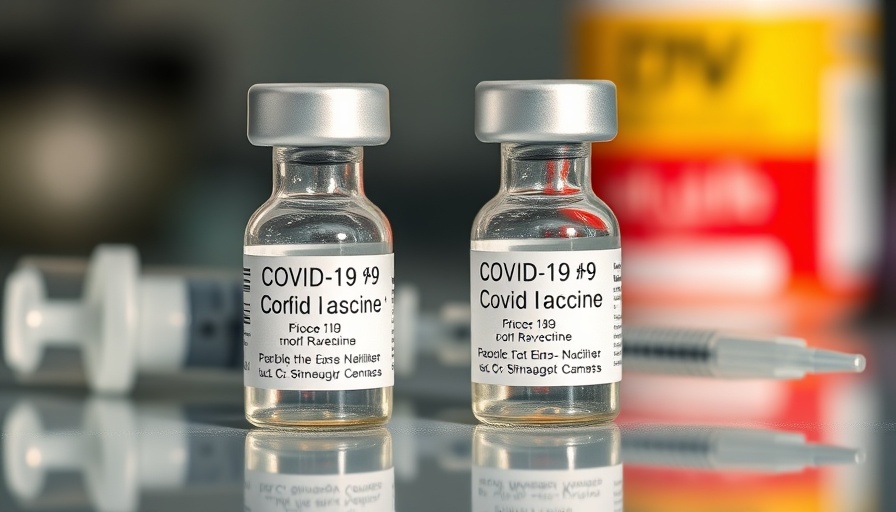
CDC’s Shift in COVID Vaccine Guidance: What Does It Mean for Pregnant Women?
The recent announcement by the Centers for Disease Control and Prevention (CDC) has caused quite a stir among healthcare professionals and expectant parents alike. With the CDC updating its immunization schedule, a notable absence has been recorded in terms of guidance on COVID-19 vaccination for pregnant women. This move, which aligns with the comments made by Health and Human Services Secretary Robert F. Kennedy, Jr., raises essential questions about the implications for maternal and infant health during a critical period of increased infection associated with respiratory diseases.
The Concerns from Medical Professionals
Many healthcare professionals, including Dr. Linda Eckert from the University of Washington, voiced alarm over the CDC’s decision. In an increasingly complex world where maternal health is paramount, Eckert expressed horror at the new guidelines, noting that COVID-19 poses significant risks to both mothers and their newborns. The absence of maternal antibodies, which are crucial for protecting infants during their first months, can lead to dangerous outcomes. As highlighted by Eckert and echoed by many in the medical community, the mom-to-baby connection through these antibodies is vital, particularly in a landscape where COVID continues to pose threats.
Understanding the Shifts in Vaccine Policy
The CDC and HHS seem to be in disarray, with divergent messages leading to confusion among healthcare providers and patients. For example, the CDC’s latest update appears to contradict prior recommendations, indicating a preference for shared decision-making between parents and clinicians about vaccinating healthy children. This inconsistency poses a challenge for doctors trying to provide the best care and advice, leading to concerns that such policy shifts could jeopardize ongoing efforts in public health.
Crisis in Vaccine Communication
Experts like Dr. Paul Offit have criticized the CDC’s handling of vaccine communications. By bypassing the standard protocol — which typically involves public discussion and recommendations via the Advisory Committee on Immunization Practices (ACIP) — the agency has left healthcare providers bewildered at how to approach vaccination discussions moving forward. This lack of clarity can lead to fear and hesitance among patients, which is particularly concerning as we face the prospect of seasonal surges in respiratory illnesses.
The Wide-Reaching Impact of Vaccine Recommendations
As the landscape of vaccination policies shifts, it is essential for individuals and healthcare professionals to stay informed and proactive. The implications extend beyond just COVID-19 vaccines; they touch upon preventive healthcare as a whole, highlighting the necessity for clear guidelines that do not undermine the hard work undertaken in public health initiatives. Risk management is essential for maternal health, especially as the summer and fall months approach when respiratory illnesses typically increase.
Why Empirical Data Matters
In these uncertain times, relying on empirical data and proven scientific methodology is crucial for healthcare decisions. As the healthcare community grapples with these recent changes, the need for diverse perspectives rooted firmly in scientific rigor must guide future recommendations. Contradictory messaging can create an environment of mistrust, ultimately harming patient outcomes and public health initiatives.
Actionable Insights for Expecting Parents
For those expecting, staying connected with healthcare providers is more important than ever. Make it a point to discuss vaccination options with your clinician, ensuring that your questions regarding safety and efficacy are answered. Maintaining open communication will empower you to make informed decisions about your health and that of your baby.
Looking Ahead: The Future of Maternal Health and Vaccination
With the landscape of healthcare continuously evolving, advancements in medical technologies and practices can offer tremendous potential for improving patient care. As telemedicine delivers flexible consultation options and AI technology enhances vaccine delivery mechanisms, future policies can incorporate these innovations to prioritize the health of both mothers and infants. The road ahead must be paved by thorough research that champions both maternal safety and informed decision-making.
As the community navigates this tumultuous terrain, it’s crucial to engage in dialogue about the evolving health landscape. Stay informed, empower yourself with knowledge, and don’t hesitate to ask healthcare providers for clarity during this pivotal time.
 Add Row
Add Row  Add
Add 




 Add Row
Add Row  Add
Add 
Write A Comment